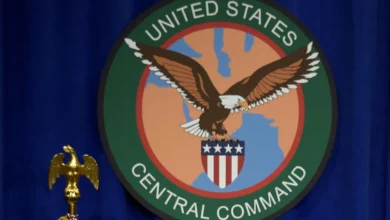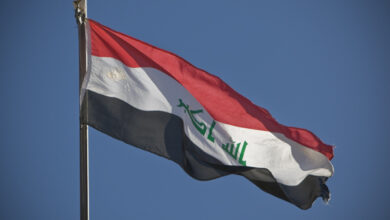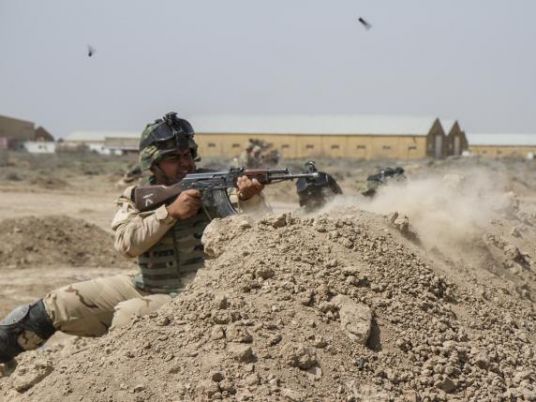“The Tenth Parallel: Dispatches From the Fault Line Between Christianity and Islam” By Eliza Griswold (Farrar, Straus & Giroux, 2010.)
This new book from Griswold, a poet and journalist, is, according to reviewer Linda Robinson, “a fascinating journey along the latitude line in Africa and Asia where Christianity and Islam often meet and clash.” Griswold’s “beautifully written” essays focus on both personal stories and the geographical realities of the “tenth parallel”–a “tropical region where monsoons and jungles give way to desert,” where a full quarter of the world’s Christians live among a growing population of Muslims. Robinson is impressed not only by Griswold’s intellectual journey, but by her personal one; on her struggles with her own religious upbringing, Griswold writes, “I spent those years wondering how it was that smart people could believe in God.” Griswold starts in Africa, moving from Indonesia to the Philippines, a mainly Christian country experiencing a surge of Islamic fundamentalism. In the end, Robinson notes, Griswold “discovered no neat theory to explain why people fight over religion or why someone like the self-proclaimed Reverend Abdu, a former Muslim Fulani nomad, lives his life as an unpaid proselytizer or why a missionary couple in the Sudan persist although they have not converted a single soul.” But Robinson values the journey, and the mystery.
"My Hollywood” by Mona Simpson (Knopf, 2010).
Ron Charles reviews this new novel from the author, most recently, of “Off Keck Road,” calling it “engaging,” “vaguely autobiographical” (also true of Simpson’s 1992 “The Lost Father”), and “absorbing.” Simpson’s Claire, a composer and new mother, struggles to raise her child and continue her work, all while reconciling herself to the fact that her assumption that her husband, a TV writer, would take on 50 percent of the parenting duties was a foolish one. Charles writes with admiration that the “withering insecurities of motherhood are captured here in Claire's stream-of-conversation patter, a mixture of acerbic wit and nervous despair from a smart woman who can't figure out how she can write music and care for a child without growing shrewish and unpleasant.” The novel divides itself among Claire’s (privileged) griping and chapters narrated by Lola, her Filipino nanny, and it’s these chapters that Charles finds the most successful. “It's a poignant vision of the upstairs-downstairs structure that persists in our officially classless society,” he writes.
“Black Hearts: One Platoon’s Descent into Madness in Iraq’s Triangle of Death” by Jim Frederick (Crown, 2010).
Edward Wilson writes, in his review of this new book on the war in Iraq, “There are three basic things to avoid in war: getting killed, being convicted of war crimes and having a commanding officer who thinks you are useless” and for the 1st infantry platoon of the US 101st Airborne, the division which Frederick focuses on, everything went wrong. The book centers on the murder of the Janabis, an Iraqi family whose 14-yr-old daughter was raped by US soldiers from the platoon. Frederick profiles individual soldiers and leaders, hypothesizing how things might have progressed differently had some not been killed, and, according to Wilson, he is a “master at describing the psychological effects” of war. Frederick seems to worry about the similarities between Iraq and Vietnam, and Wilson does, too, writing, about Frederick’s depiction of the mindset of soldiers in the 1st Platoon toward civilians, “the same dehumanisation that led to My Lai led to the murder of the Janabis.” It’s a chilling account, and, according to Wilson, “the best book by far about the Iraq war.”
“The Twilight of the Bombs: Recent Challenges, New Dangers, and the Prospects for a World Without Nuclear Weapons” by Richard Rhodes (Knopf, 2010).
Reviewer George Perkovich writes, “The political history of nuclear weapons is repeating itself: One country gets the ultimate weapon of mass destruction, feels smug and secure for a while, then tries desperately to keep its adversaries from joining the club.” This is specifically in reference to Israel’s ongoing threat to use a nuclear weapon against Iran, and it is also the subject of this new book by Rhodes (whose previous works also dealt with atomic weapons), which asserts at its core that “complete nuclear disarmament is a laudable ambition.” Perkovich puts his trust in Rhodes’s work completely, writing, “No one writes better about nuclear history than Rhodes does, ably combining a scholar's attention to detail with a novelist's devotion to character and pacing.” His book traces the world’s nuclear armament from the Cold War until the US invasion of Iraq, and his “great strength is in storytelling.” Certainly, the characters involved in the historical spectacle of nuclear proliferation–from Dick Cheney to a UN weapons inspector on mission in a pre-invasion Iraq–shine through the narrative. However, as seems to be the case when talking about nuclear weapons, Rhodes is, according the Perkovich, “less convincing when he tries to predict the future” than he is when he’s describing the past.




